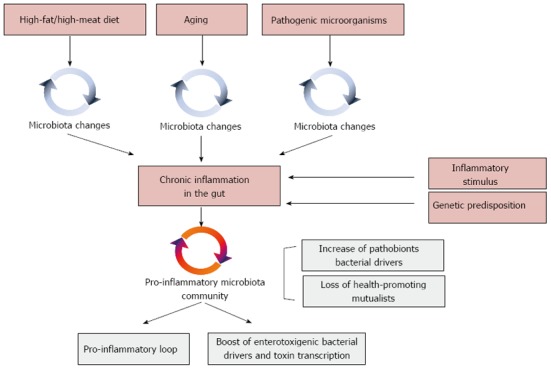Figure 3.

Environmental triggers, such as diet, aging and pathogen infections, can force microbiota changings that, in a genetically susceptible host, can drive to chronic inflammation in the gut. Inflammation shifts the gut microbiota towards a pro-inflammatory configuration, supporting colorectal cancer (CRC) drivers as pathobionts at the expense of health-promoting CRC-protective microbiota components. As a consequence, a pro-inflammatory loop is established in the gut, directly supporting CRC onset and favoring colonization by toxigenic bacterial drivers directly involved in CRC promotion.
